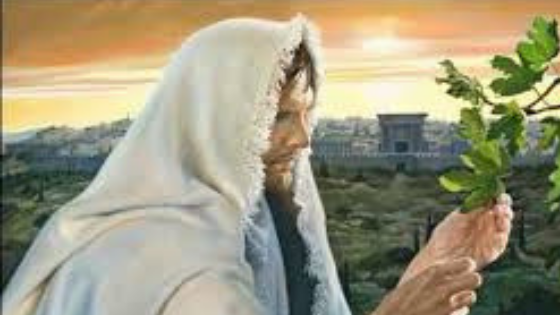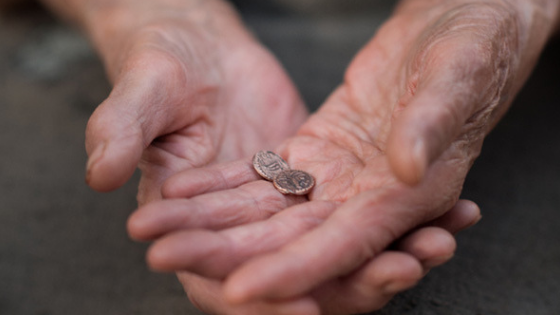
Sixteenth Sunday in Ordinary Time Year A (23 July 2017)
Wisdom 12:13,16-19; Ps. 86:5-6,9-10,15-16; Rom. 8:26-27; Matthew 13:24-43.
Theme: The Kingdom of Heaven is Like…
Nested between the parable of the weeds and wheat and its eschatological explanation in today’s Gospel reading are the two brief parables of the mustard seed and the yeast. All three propose to tell us what the kingdom of heaven is like.
The enemy who comes at night in the first story sows zizania among, or on top of, the wheat so that both will be plowed in together thus spoiling the crop. In English versions of the New Testament zizania is variously translated as ‘darnel’, ‘tares’ or ‘cockle’, or by the more general term ‘weeds’. Darnel is a common weed in Mediterranean grain fields. It is a variety of ryegrass that looks very much like wheat in its immature stages but differs at maturity in having lighter heads of grain so the stalks stand upright, whereas wheat tends to droop with its heavier ears. Also, when ripe, darnel grains which are poisonous turn black, whereas wheat is brown [BioNET]. The landowner’s decision to allow both to grow until the harvest might be counter-intuitive (Why keep what is bad?) but there is good practical sense behind it. So too with the inclusive community of Jesus’ followers, tax-collectors and sinners and all.
Jewish New Testament scholar Amy-Jill Levine sees much of the commentary on the parables of the mustard seed and of the yeast by Christian scholars over the years as problematic, e.g. the common interpretation of both as saying something about growth in faith, or the growth of the church with the coming of the Gentiles. They have also been seen as subverting the Jewish purity code or, in the case of the mustard seed, the notion of empire by contrasting the mustard ‘tree’ (actually a shrub up to three meters high) with the great cedar with all the birds of heaven nesting in its branches in Ezekiel’s prophecies [Ezek 17:22-24; 31:1-9] about the inevitable downfall of Assyria [Levine 154-155]. Instead, her search for meaning in these parables in their original context centers on the contrast in both between small and great, on the unseen processes of growth, and on the domestic setting of both stories.
The tiny mustard seed, in silence and in secret, produces prodigious outcomes: a plant that offers shelter and nourishment to birds, and with its spicy seeds and curative properties, pleasure and relief to humans [Levine 158-159]. And all of this in abundance.
The woman in the parable of the yeast ‘hides’ the yeast in three measures of flour, about 60 pounds, the same amount that Sarah was instructed by Abraham to use when showing hospitality to the three strangers in Genesis 18:6, after he had told them he would bring them ‘a little bread’! Extravagant abundance is a feature of the kingdom [Boucher 76; Levine 165-7].
In both parables the natural agents (seed and yeast) work away on their own, quietly and in secret, once set in motion. But human agency (planting and kneading) is necessary to initiate the process. So with the growth of the kingdom – we all need to be involved. The garden and kitchen settings remind us that it is in our ordinary everyday lives, relationships and activities that the kingdom keeps growing.
For Reflection and Discussion: 1. In what ways do Amy-Jill Levine’s interpretations quoted above change, or add to, your previous understanding of these parables? 2. What are some features of our modern world that you would regard as signs of the growth of the kingdom? 3. What is the leaven that you can contribute that will foster this growth?
Bibliography: Levine, Short Stories by Jesus (New York NY, 2014); BioNET http://keys.lucidcentral.org/keys/v3/eafrinet/weeds/key/weeds/Media/Html_Lolium_temulentum_(Darnel_Ryegrass).htm; Boucher, The Parables (Dublin, 1981).
This week’s Sunday Gospel Commentary was prepared by
Br Kevin McDonnell cfc, PhD., Australia, Bat Kol Alumnus, 2003, 2004, 2005.
Email address: klmcdonnell@edmundrice.org
[Copyright © 2017]
………………………………………………………
PLEASE NOTE: The weekly Gospel commentaries represent the research and creative thought of their authors, and are meant to stimulate deeper thinking about the meaning of the Sunday Scriptures. While they draw upon the study methods and sources employed by the Bat Kol Institute, the views and conclusions expressed in these commentaries are solely those of their authors, and do not necessarily represent the views of Bat Kol. Questions, comments and feedback are always welcome
……………………………………………………
Bat Kol Institute for Jewish Studies, Jerusalem
1983-2017
“Christians Studying the Bible within its Jewish milieu, using Jewish Sources.”
gill@batkol.info Website: www.batkol.info



